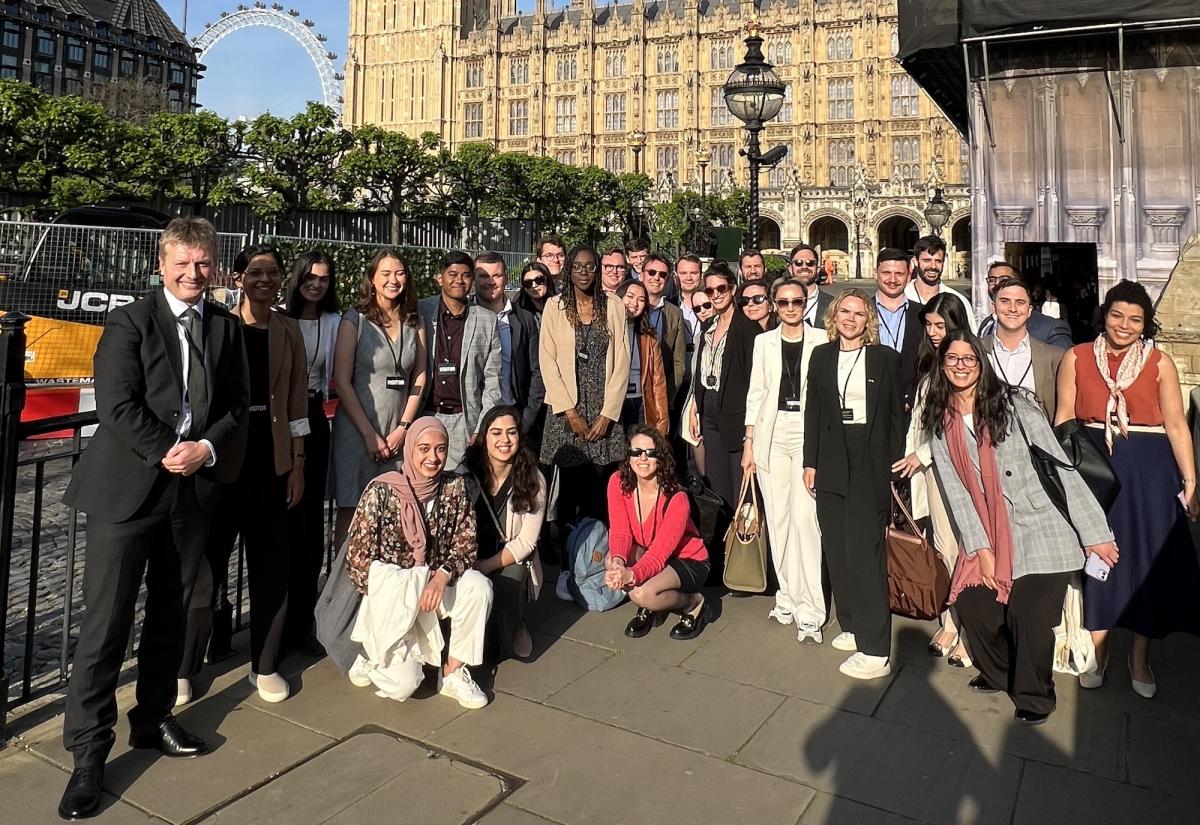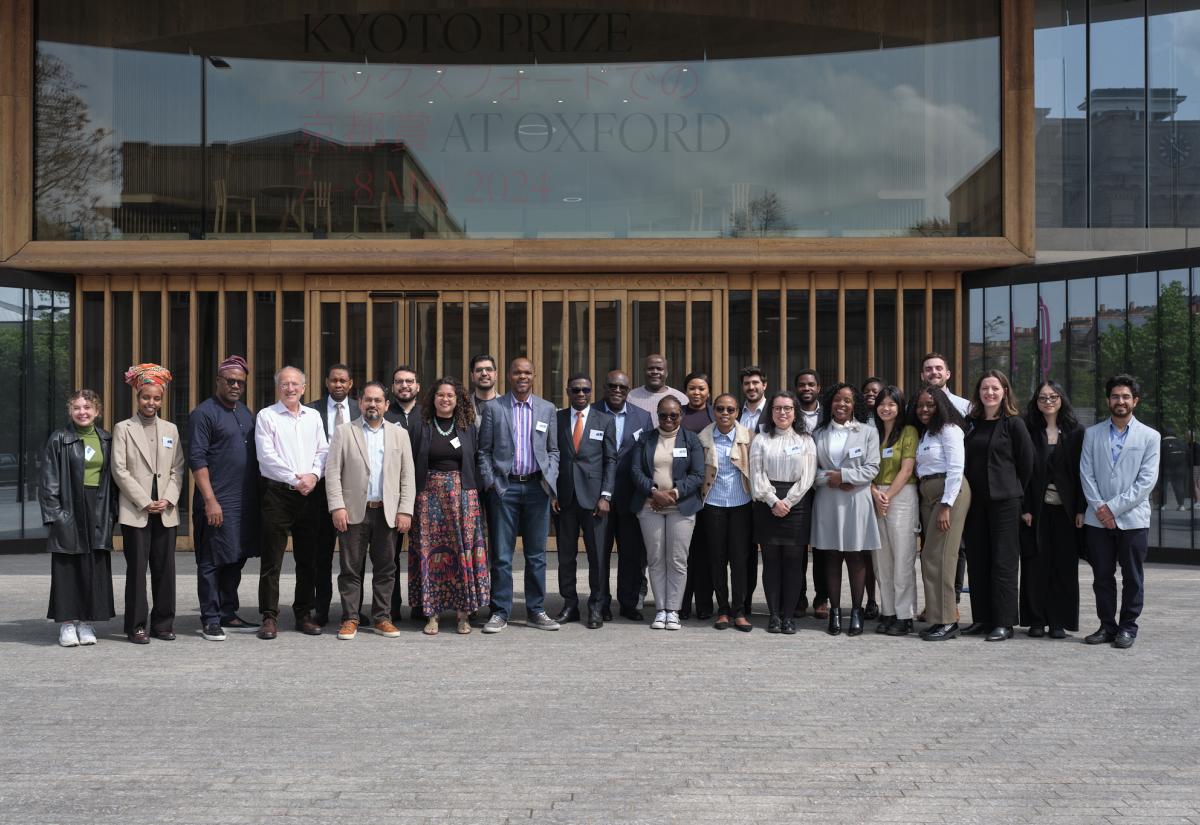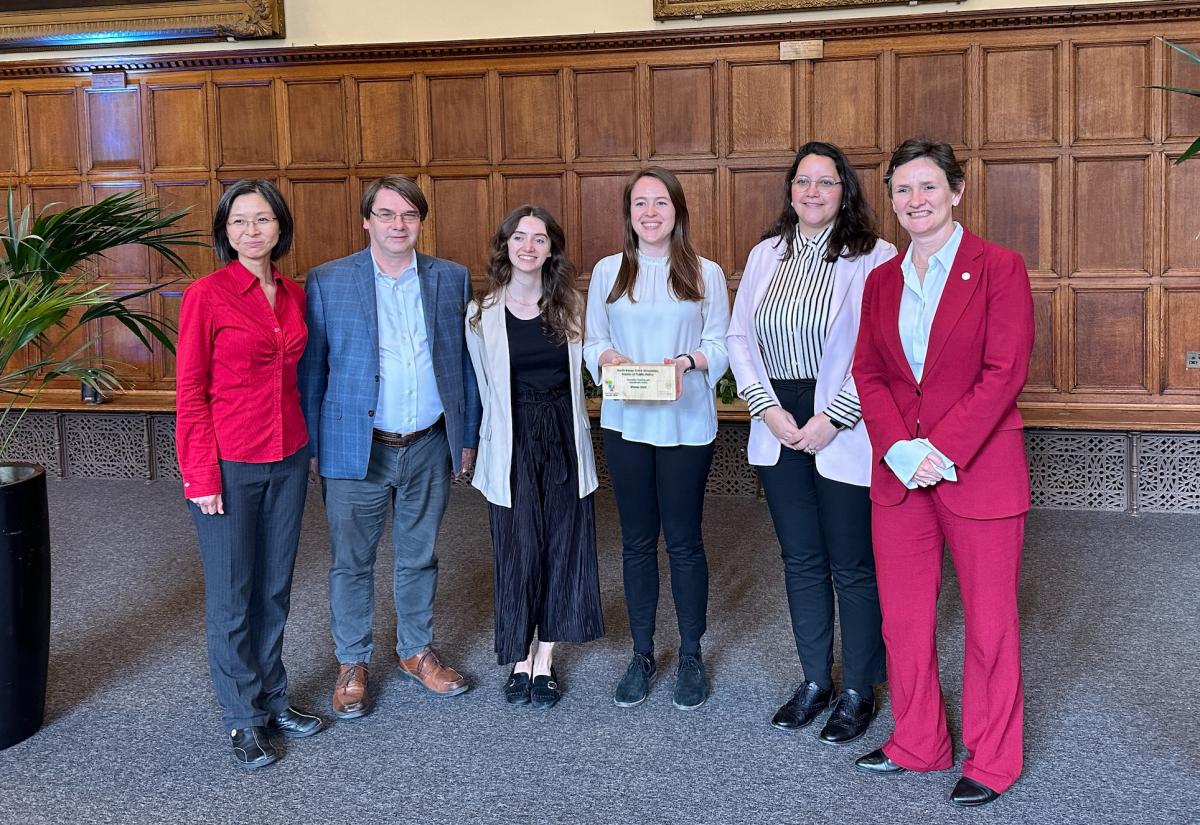Dr Kate Orkin and her team in the Mind and Behaviour Research Group have received one of the University of Oxford’s prestigious Vice-Chancellor’s Innovation and Engagement Awards.
The awards celebrate the ways in which research undertaken at the University of Oxford makes a positive difference to the economy, the environment, and society.
The Mind and Behaviour Research Group brings together economists, psychiatrists, and psychologists based at the University of Oxford to investigate the psychological impact of living in poverty and use findings to improve policy programmes. The group is based within the Centre for the Study of African Economies.
Dr Orkin, who is Associate Professor of Economics and Public Policy at the School, assembled a project team including researchers from Oxford, the University of Cape Town and Duke University who identified and lobbied for key updates to welfare policy in South Africa to reduce hunger and poverty during the initial COVID-19 lockdown in 2020. Among those honoured by the award are Brynde Kreft, Marta Grabowska, Desmond Fairall, Alice Cahill (Oxford); Dr Robert Garlick and Ignacio Rodriguez Hurtado (Duke); Dr Yasmine Bekkouche; Wim Louw (J-PAL Africa); and Saul Musker, Rudi Dicks and Dr Kate Philip (Private Office of the President, Republic of South Africa).
When the pandemic began to impact South Africa severely in March 2020, the government implemented a strict lockdown, which led to three million people losing their jobs. Efforts to distribute food parcels to the destitute began in April 2020, but the government struggled to implement this emergency relief at scale. Between April and July, only 1.2 million food parcels were distributed, while 9.8 million households were unable to buy enough food to cover basic needs.
Using evidence from their research and other research worldwide, Dr Orkin and her team recommended distributing relief through cash grants rather than food parcels, advocated for providing unemployment benefits and for moving the application process for financial assistance to mobile phones rather than in-person appointments. Together, the team’s recommendations influenced spending of ZAR 97.5bn (GBP 4.87bn) which reached 28.5 million people.
Project leader Dr Kate Orkin said: “This has been the effort of a massive team, in multiple government departments in South Africa and in Oxford and the University of Cape Town. This is really a prize to recognise the civil servants and their political principals – we could sketch out the evidence on a computer screen far away but they had to make it happen for millions of people in weeks. COVID-19 opened up political space for audacious changes that we've all dreamed of and argued for but struggled to make progress on. We've learned how much is possible if governments are brave enough to listen to the evidence and ignore unjustified stereotypes about poor people that prevent us designing policy in the most cost-effective way. It has been a privilege to work alongside them, seeing them make government work at its best.
“The teams in Oxford and Cape Town were remarkable. They are all early career researchers. This was the biggest project any of us had ever worked on. They took the pressure, the politics, the disappointments and the back-breaking work in their stride and we've been part of achieving the biggest changes in the South African welfare system in 20 years.
“This is only the beginning – we're working hard toward the next budget to try to make these grants permanent, achieving long-term poverty reduction in a fiscally sustainable way.”
The award was officially presented to the team at a ceremony and exhibition on 6 September 2022.



